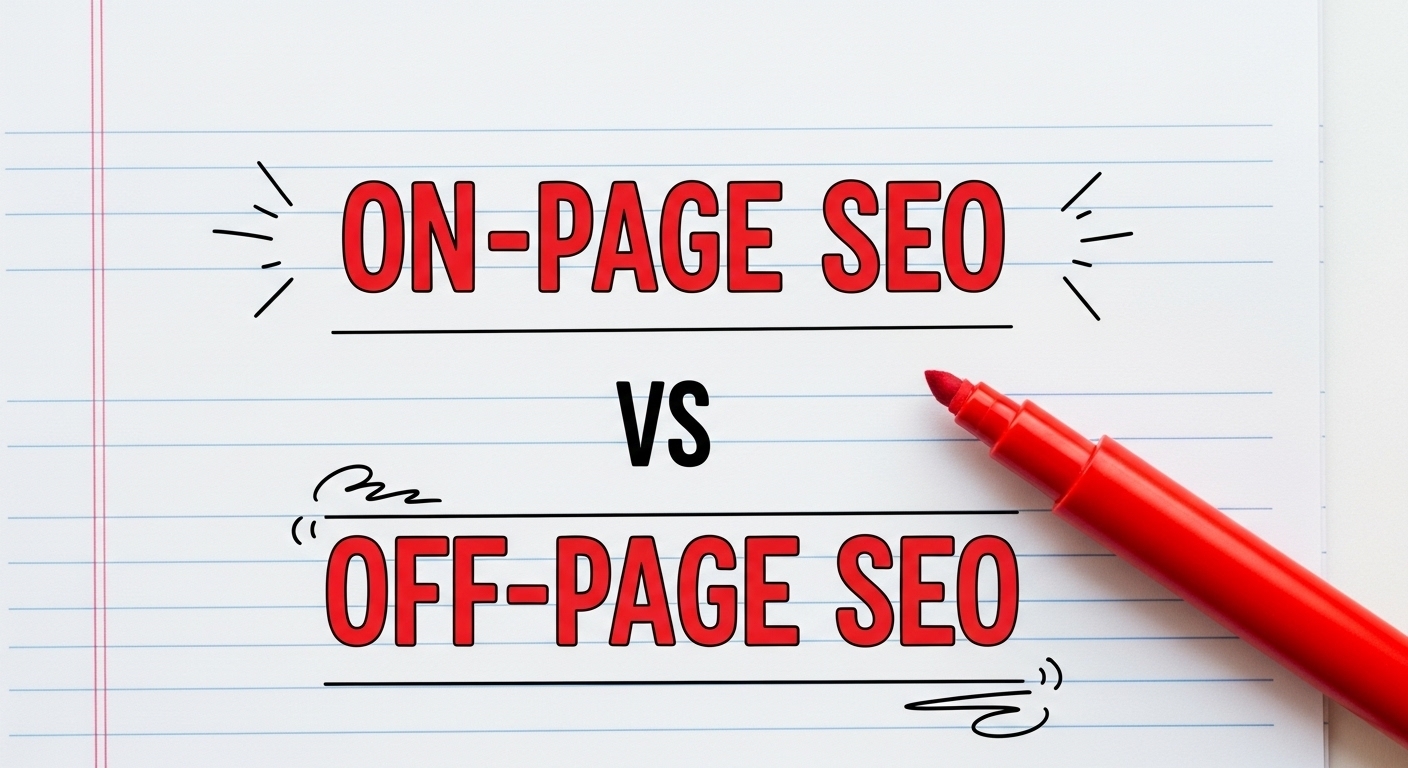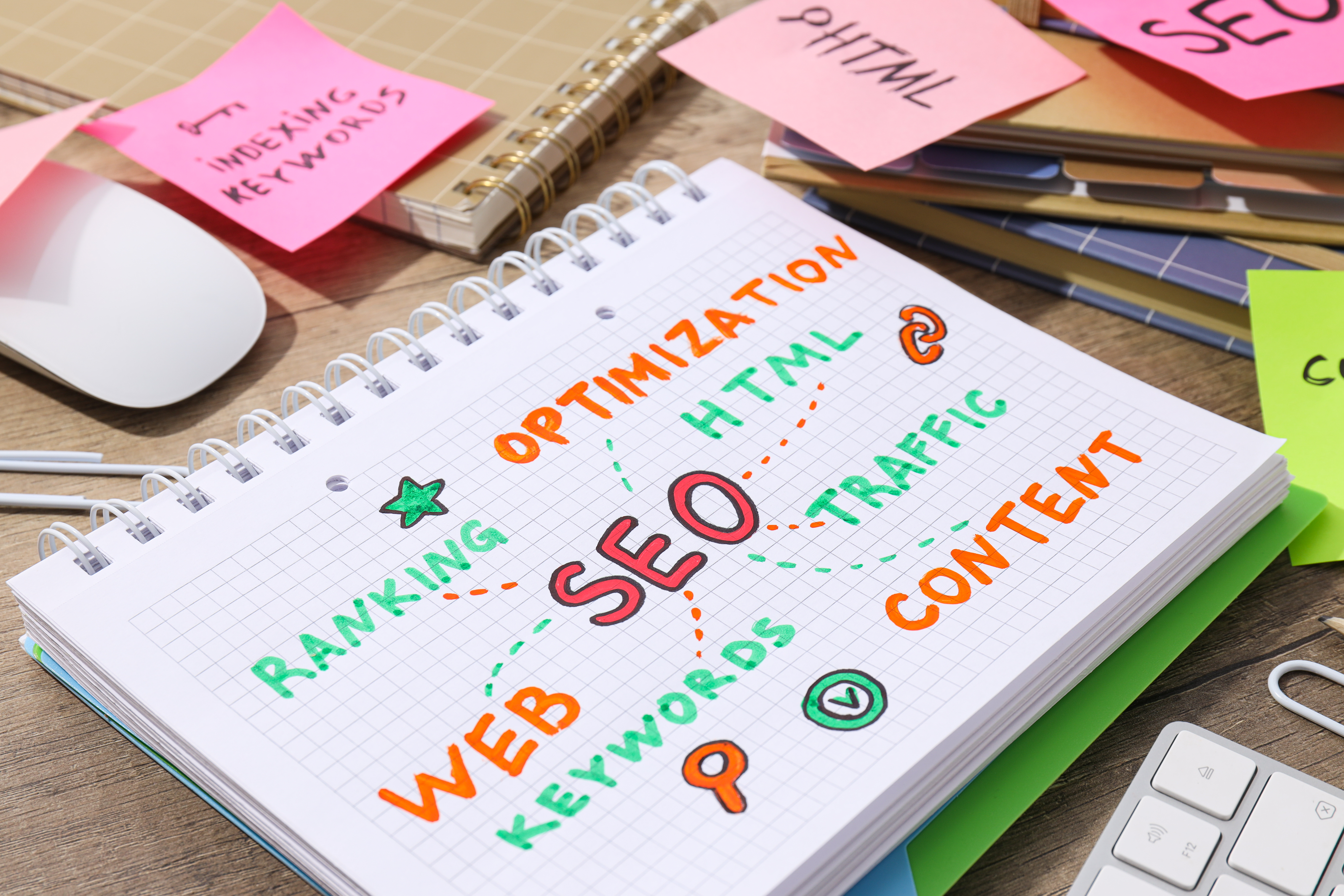5 min read
Discover What is the Difference Between Organic and Paid Search
Jeremy Wayne Howell
:
Aug 5, 2025 7:34:46 AM

Key Highlights
-
Search engine optimization (SEO) plays a crucial role in improving organic rankings, offering long-term visibility and credibility.
-
Paid search operates on a pay-per-click (PPC) model, providing immediate visibility through tailored ad campaigns targeting specific keywords and audiences.
-
Organic search delivers sustained traffic over time, whereas paid search offers quick but short-lived results.
-
Combining organic and paid search strategies is a powerful way to enhance overall digital marketing efforts and maximize ROI.
Overview
Standing out in search results has become vital for online success in today’s competitive digital landscape. Businesses primarily rely on two strategies to appear in search engine results: organic search and paid search.
Organic search leverages natural rankings earned through relevance, while paid search provides immediate visibility through advertisements.
Although both aim to drive traffic and engagements, their methods, costs, and outcomes vary significantly. Let’s explore these two approaches, what sets them apart, and how they can complement each other.
Defining Organic and Paid Search
Organic search represents unpaid listings in search engines, ranked based on keywords’ relevance and website quality. It relies heavily on SEO techniques such as quality content creation and keyword optimization to gain visibility.
On the other hand, paid search utilizes advertisements appearing on SERPs, targeting specific audiences using paid ad campaigns.
These methods differ in strategy—organic search focuses on long-term credibility, while paid search offers instant visibility. Understanding these distinctions ensures businesses leverage the right strategy for their goals.
What is Organic Search?
Organic search refers to non-paid results that search engines rank based on their relevance to a user’s query. These organic results appear in the main body of the search engine results pages (SERPs), driven by factors like content quality, backlinks, and SEO strategies.
Websites optimize their pages for organic search through search engine optimization (SEO), which includes keyword research and strategic placement, improving rankings over time. Organic search requires patience, as results usually materialize over months, unlike instant paid search outcomes.
Achieving top organic search rankings builds website credibility and attracts relevant traffic without incurring direct payment costs. For instance, a blog targeting niche keywords consistently generates organic search traffic as long as it aligns with user intent and SEO principles.
What is Paid Search?
Paid search involves advertising campaigns displayed prominently on search engine results pages (SERPs). These ads, often labeled "sponsored," are powered by platforms like Google Ads, operating on a pay-per-click (PPC) model. Advertisers bid on keywords relevant to their offerings, ensuring their ads appear for specific search queries.
Unlike organic search, paid search guarantees instant visibility and a targeted reach. Ads can be customized by location, demographics, and keywords, making them highly adjustable for short-term objectives.
For example, an e-commerce site can create a paid ad campaign using keywords like “buy ceramic mugs online.” By implementing a PPC strategy, advertisers gain quicker conversions, albeit with ongoing costs linked to bids and clicks.
How Organic Search Works
Organic search relies on search engine algorithms to rank websites based on their relevance and quality. These algorithms assess factors such as content richness, backlinks, and user engagement metrics. Optimizing your site through SEO practices is crucial to improving organic rankings.
This method fosters lasting visibility, offering sustained traffic and credibility for businesses. However, patience is necessary as organic search takes time to yield results, requiring consistent updates to maintain relevance and rankings.
Search Engine Algorithms & Ranking Factors
Search engine algorithms are the driving force behind organic search rankings. These complex systems evaluate websites based on factors such as keyword relevance, user behavior, and content quality.
Websites are ranked higher when they align closely with algorithm criteria. For instance, engaging and well-structured content addressing specific search queries enhances perceived relevance. Backlinks from reputable domains also contribute positively to rankings.
It’s important to remain adaptive to algorithm updates. Regular changes, like Google’s core algorithm updates, can influence rankings, underscoring the need for SEO best practices to stay competitive.
Role of SEO in Organic Search
Search engine optimization (SEO) plays a pivotal role in organic search success. Effective SEO practices include:
-
Keyword Research: Identifying relevant search queries to target your audience.
-
Content Optimisation: Crafting high-quality, engaging content aligned with user intent.
-
Technical SEO: Ensuring seamless website functionality, from mobile responsiveness to faster loading speeds.
When implemented correctly, SEO increases rankings, drives organic traffic, and builds website credibility. Businesses leveraging SEO establish their authority within their niche, fostering sustained growth without recurring ad expenses.
How Paid Search Works
Paid search functions through search engine marketing initiatives, allowing businesses to promote their ads directly on SERPs. Advertisers utilize paid ad campaigns, targeting specific keywords to reach their audience instantly.
Operating within a pay-per-click model, paid search requires constant investment but ensures rapid visibility for your offerings. It’s particularly advantageous for short-term campaigns targeting immediate traffic boosts and conversions.
Understanding Pay-Per-Click (PPC) Advertising
Pay-per-click (PPC) advertising serves as a fundamental component of digital marketing strategies. This model allows advertisers to bid on specific keywords, ensuring their ads appear at the top of the search engine results page (SERP).
By leveraging PPC campaigns through platforms like Google Ads or social media channels, businesses can enhance visibility and attract qualified leads quickly. However, marketers must consider the balance between immediate results and the long-term benefits of organic search optimization to maximize their overall marketing strategy.
Ad Placement & Bidding on Search Engines
Ad placement in paid search campaigns depends on bidding strategies and quality scores. Advertisers bid for keywords, competing to secure top positions on SERPs.
Search engines evaluate bid amounts, ad quality, and relevance to determine placement. Ads appearing in premium positions enjoy higher visibility and click-through rates (CTR). Optimizing ad content ensures better placements, driving ROI.
Strategic bidding aligned with keyword demand is essential for maintaining placement competitiveness across PPC platforms like Google Ads and Bing Ads.
Key Differences Between Organic and Paid Search

The fundamental differences between organic and paid search lie in cost, visibility, and longevity. Organic search requires no direct payments and focuses on long-term rankings achieved through SEO. In contrast, paid search offers instant visibility by displaying advertisements at the top of SERPs, incurring regular costs for clicks.
Businesses with limited budgets may prefer organic strategies, while paid search suits short-term goals requiring immediate traffic. Understanding these dynamics helps in tailoring marketing strategies effectively.
Cost Implications for Businesses
|
Aspect |
Organic Search |
Paid Search |
|---|---|---|
|
Initial Cost |
Minimal or none |
High upfront costs |
|
Long-Term Cost |
Content optimisation |
Continued PPC investment |
|
ROI |
Impressive, yet time-bound |
Accelerated, measurable |
Organic search initiatives involve ongoing website enhancements, while paid campaigns demand a consistent budget allocation. Businesses pursuing long-term credibility may favor organic methods, whereas paid search benefits short-term ROI goals.
Visibility, Speed, and Longevity of Results
Paid search offers unparalleled immediacy, placing ads atop SERPs instantly. Organic search gains visibility gradually yet sustains long-term rankings through continuous SEO efforts.
Benefits include:
-
Instant Placement via paid ads for immediate traffic, especially for time-sensitive promotions.
-
Longevity ensures organic listings retain visibility, driving continual traffic years after optimization.
-
Increasing credibility through natural search rankings builds trust.
These contrasting timelines make hybrid strategies appealing for businesses balancing urgency with sustainability.
Pros and Cons of Organic vs. Paid Search
Organic search marketing boasts lasting traffic, high credibility, and cost efficiency, albeit taking time to yield results. Conversely, paid search delivers instant visibility, measurable outcomes, and direct control, though requiring constant investment.
Choosing between these strategies depends on business priorities, available resources, and timelines. For many, combining both methods creates a balanced, impactful approach that aligns with immediate and future goals.
Advantages and Limitations of Organic Search
Advantages:
-
Cost-effective and sustainable.
-
Builds trust and authority over time.
Limitations:
-
Requires patience for results.
-
Ongoing SEO maintenance is necessary.
Organic search traffic lies in its ability to offer low-cost engagement over the long haul. Businesses investing in niche keywords create lasting impressions but must remain vigilant against algorithm updates to maintain visibility.
Benefits and Drawbacks of Paid Search
Benefits:
-
Immediate traffic and conversions.
-
Granular targeting options through platforms like Google Ads.
Drawbacks:
-
Short-lived results without budget allocation.
-
Experience in PPC campaign management is required.
Paid search remains ideal for businesses aiming to test campaigns rapidly but demands expertise and significant financial commitments for optimized outcomes.
Final Thoughts
Understanding the difference between organic and paid search is crucial for any business looking to enhance its online presence.
While organic search focuses on long-term visibility and relies on SEO strategies to gain rankings, paid search offers immediate results through targeted ads. Each approach has its own set of advantages and disadvantages, making it essential to evaluate your specific goals and budget.
By leveraging both strategies, you can create a comprehensive digital marketing plan that maximizes your reach and engagement.
If you have questions or need assistance in navigating the complexities of organic and paid search strategies, contact The Way How today.
Frequently Asked Questions
The main difference lies in cost and visibility. Organic search results are unpaid listings based on relevance, while paid search results are advertisements placed at the top of SERPs using paid ad campaigns.
Advertisements provide immediate visibility, unlike the gradual rankings of organic results.
Organic search often takes several months to show noticeable results. Factors such as SEO efforts, keyword competition, and algorithm changes influence the time needed to improve rankings and attract traffic. Regularly updating content speeds up the process.
Want to Learn Something Else?

Understanding How Important is Content Quality for SEO

